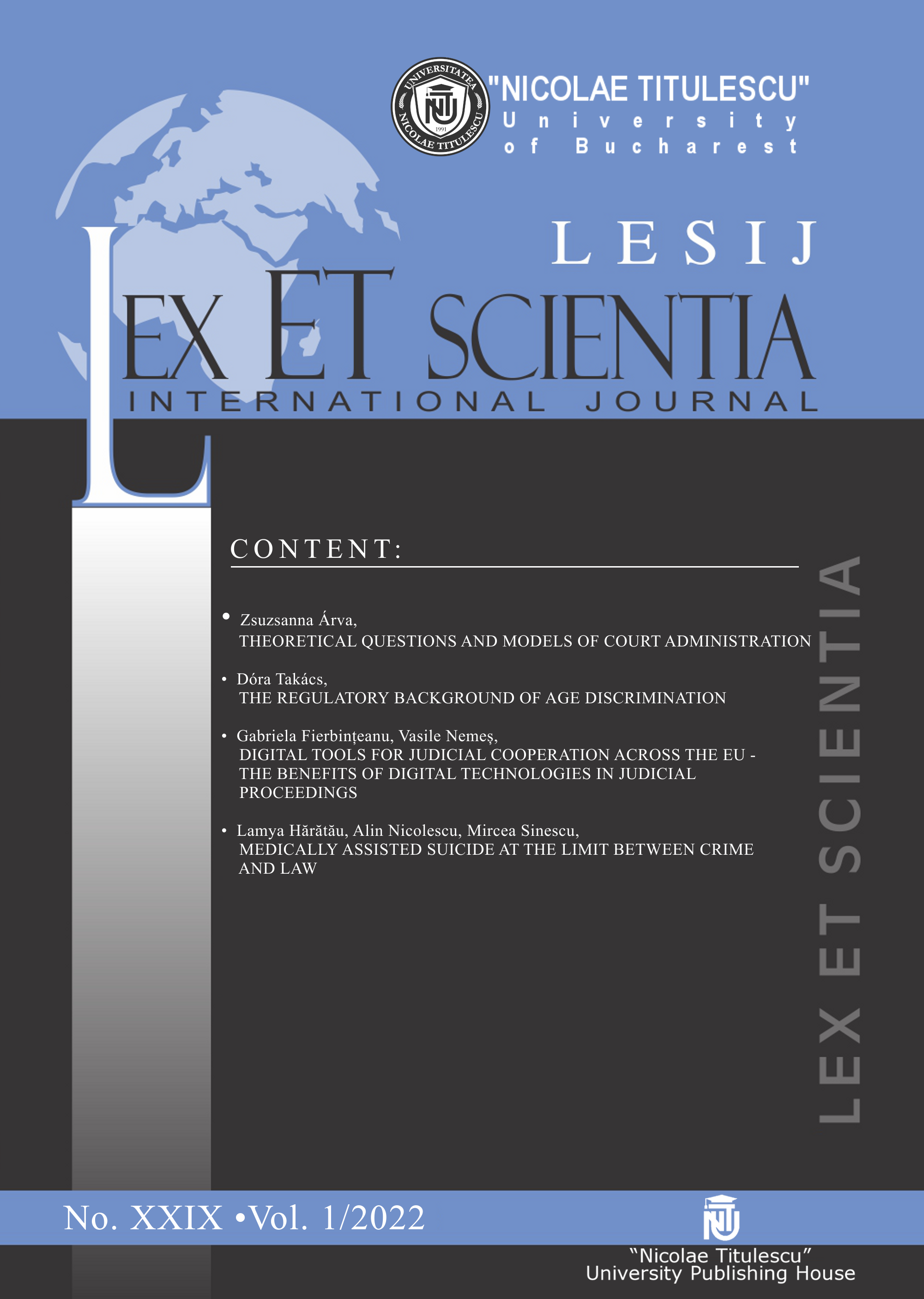DIGITAL TOOLS FOR JUDICIAL COOPERATION ACROSS THE EU - THE BENEFITS OF DIGITAL TECHNOLOGIES IN JUDICIAL PROCEEDINGS
DIGITAL TOOLS FOR JUDICIAL COOPERATION ACROSS THE EU - THE BENEFITS OF DIGITAL TECHNOLOGIES IN JUDICIAL PROCEEDINGS
Author(s): Vasile Nemeş, Gabriela FierbințeanuSubject(s): Law, Constitution, Jurisprudence, Human Rights and Humanitarian Law, ICT Information and Communications Technologies, EU-Legislation
Published by: Universitatea Nicolae Titulescu
Keywords: cross-border justice initiatives; access to justice; digitalisation of judicial cooperation; digital by default; fundamental rights;
Summary/Abstract: Digital technologies have great potential to improve efficiency and access to justice, with the European Commission and the EU Council collaborating on a number of cross-border digital justice initiatives as a result of the political commitment to make national and European e-Justice more accessible. The COVID-19 crisis posed a serious challenge to the smooth functioning of justice systems, confirming that digital technologies are essential to ensure seamless and timely access to justice for citizens and businesses, thus contributing to building resilient national systems. The Joint Roadmap for Recovery1 , endorsed by the European Council on 23 April 2020, recognises digital transformation, alongside the green transition, as having a central and priority role in re-launching and modernising the EU economy. As underlined in the Council Conclusions "Access to justice - “Access to Justice – Seizing the Opportunities of Digitalisation"2 adopted in 2020, access to justice is a fundamental right and a central element of the rule of law, which is one of the core values on which the European Union is founded under Article 2 of the Treaty on European Union and which are common to the Member States. The document also reaffirms that the digital development of the justice sector should be human-centered and should always be guided by the fundamental principles of judicial systems concerning the independence and impartiality of the courts, the guarantee of effective judicial protection and the right to a fair and public trial within a reasonable time.
Journal: LESIJ - Lex ET Scientia International Journal
- Issue Year: XXIX/2022
- Issue No: 1
- Page Range: 7-15
- Page Count: 9
- Language: English

